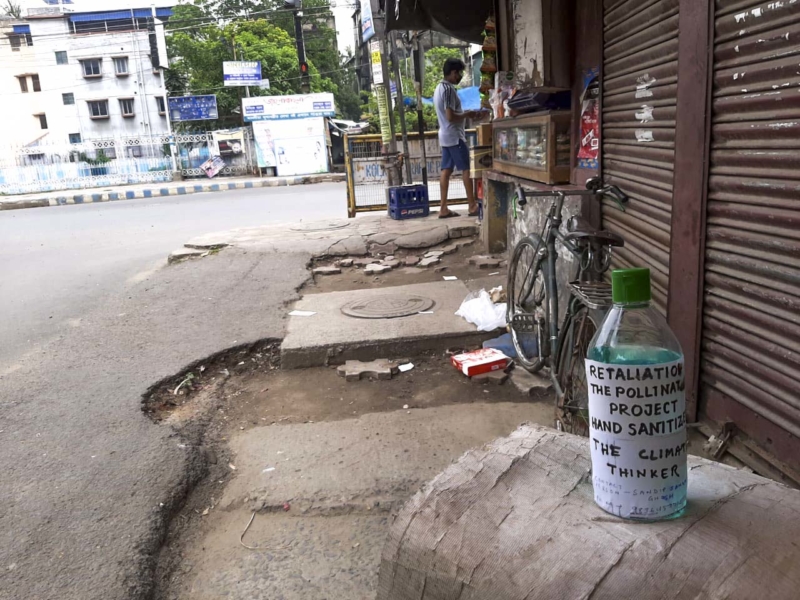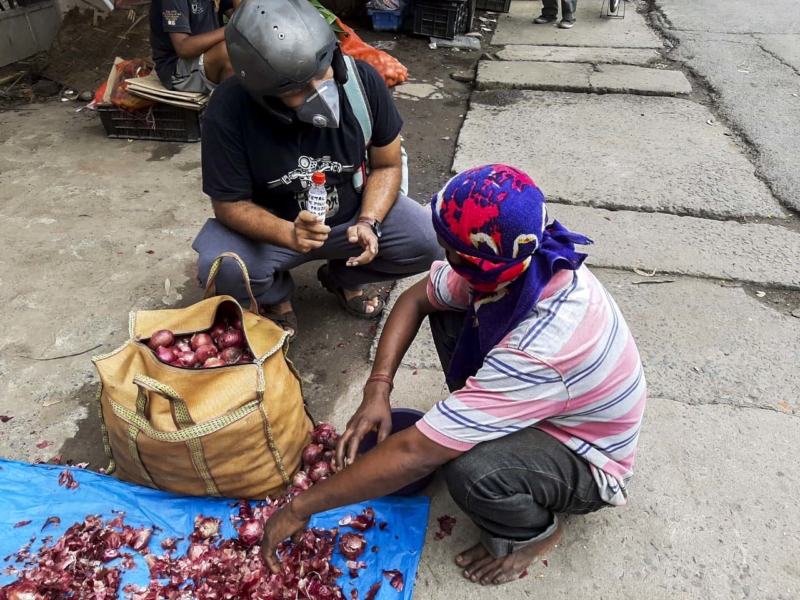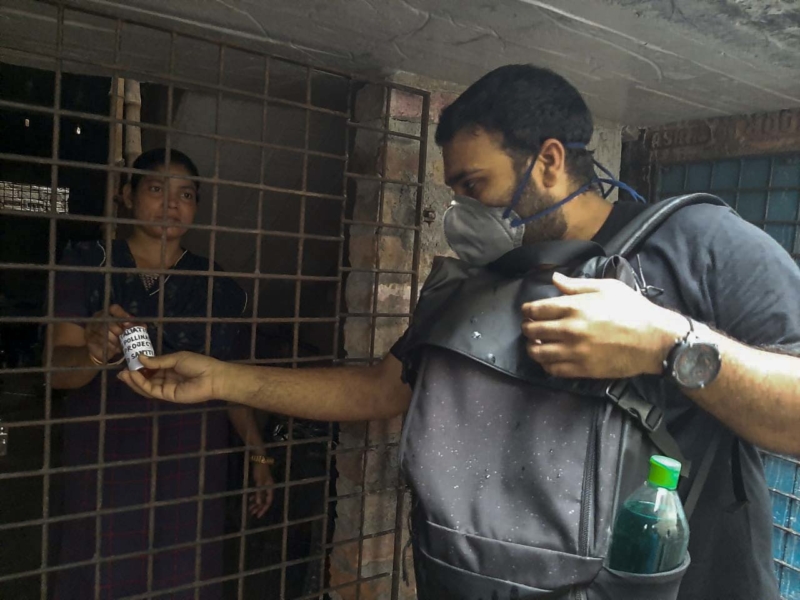As of last month, India entered stage three of the coronavirus epidemic, causing the markets to be completely exhausted of hand sanitizer and medical shops to exploit their supply by raising the price to more than five times of what it sold for just a few months earlier.
Sandip Sankar Ghosh, a grantee of TPP’s COVID-19 Rapid Response Fund and a medical practitioner who has worked with marginal communities in urban and peri-urban areas of Kolkata, India, for the past eight years, was not shocked by this or the glaring disparity among his country people this price gouging illuminated:
“Although higher and middle communities have taken precaution, the lower class or marginal class remain at high risk of getting infected,” says Ghosh. “Sanitizer is a basic and first line of defense against the virus and it should be made available to all the citizens. The inadequate supply and black-marketing of the essential sanitizer need to be addressed as the disease is on the verge of spreading exponentially among the marginal communities in India.”
As a result, Ghosh knew he had the opportunity to use his specialized knowledge to help the communities he had worked with for so long. His ingenious plan? Using the WHO’s gold standard recipe, he created his own hand sanitizer by mobilizing the youth in the Kolkata slums to help him. Ghosh describes:
Sandip Sankar Ghosh
“Our plan of action includes training and capacity building of 2-3 marginalized youth per slum, providing them raw material for the hand sanitizer and finally creating a network in the slum by which the sanitizer can be distributed to each family.”
Because mass gatherings are not acceptable during the pandemic, Ghosh had to get creative: “The youth will execute the entire work plan in their respective slums. We will be present for training, supplying raw material, and coordinating the entire process. The distribution will be done on a door-to-door basis which will obey the rules and regulations put forth by the health department. Therefore, the entire project can be operated in case of complete shut down as there will be local operators who will take responsibility for their own slum.”
Each bottle of hand sanitizer is accompanied by a pictorial user manual printed on recycled paper to demonstrate to those members of the community who cannot read how to properly use the sanitizer.
Ghosh’s goals are to scale up in at least five slums covering 500 families and 2,500 marginalized people. So far, Ghosh and his network have distributed hand sanitizer to more than 1,600 individuals and have educated more than 600 individuals about the coronavirus, so he is well on his way toward reaching and surpassing his goals.

Despite the sheer numbers of people Ghosh has helped through his work, he always keeps in mind the importance of each individual to which he gives the life-saving liquid: “During the last minutes of a recent door-to-door supply, a little girl came from a different slum and asked for bottle of sanitizer. She heard about the distribution and came to take one for her family. Her smile made our day.”
Ghosh wishes to thank Riki for utilizing his network among the urban poor and Baby di, a local community leader who volunteered to go door-to-door to supply the hand sanitizer.
To support Ghosh and his pioneering work, please email him at: [email protected]




